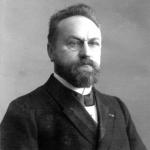
Ivy League researchers published an article in Nature claiming that, according to their study, conservatives do not get censored more on social media because of political bias but because they circulate more misinformation!
Well, that explains it! Never mind the possibility that opinions about what is misinformation and what is true information might themselves involve political bias!
The question of truth and how we know what is true has become a major problem today. Virtually everyone with access to a computer–which includes just about everybody–can post whatever they want on the internet, from gossip to paranoid fantasies, and it becomes part of the marketplace of ideas. But the problem is not just with technology. Our dominant philosophy today, taught in our elite universities, is that truth is a construction, something we make up for ourselves or that is made up for us by those in power to keep us in line. If the Ivy League researchers would have consulted with their colleagues in the humanities departments, they would have been told that pretty much every truth claim has a political bias.
So in today’s climate, information (facts), misinformation (incorrect facts), and disinformation (deliberately incorrect facts) are all jumbled together. This has given rise to “fact-checkers,” often employed by the news media and social media companies, to rule on what is to be accepted as factual. For social media companies, material classified as “misinformation” or “disinformation” is not just corrected or challenged, it is not allowed to be said. The post that fails fact-checking is taken down or restricted in its reach, and if posters continue to misbehave, their account will be suspended so that they will be “de-platformed.”
But what about freedom of speech? It is said that the Bill of Rights only forbids the government from restricting speech, but that private corporations may do so, and yet sometimes the government has been telling the private corporations what and whom to censor. You would think that the Ivy League humanities departments would follow their own logic in recognizing that the government, big corporations, and the educational establishment constitute a power elite that seeks to impose its own constructions of truth on a public it seeks to control. But they don’t seem to be applying their critical theories to themselves.
So what is the solution? A way forward is suggested by Andrew Stuttaford in a National Review article about former presidential nominee John Kerry complaining about the First Amendment as an obstacle to combating “misinformation.” He quotes economist John Cochran:
Much of the “misinformation,” especially regarding COVID-19 policy, turned out to be right. It was precisely the kind of out-of-the-box thinking, reconsidering of the scientific evidence, speaking truth to power, that we want in a vibrant democracy and a functioning public health apparatus, though it challenged verities propounded by those in power and, in their minds, threatened social stability and democracy itself. Do we really think that more regulation of “misinformation” would have sped sensible COVID-19 policies?
Instead of depending on a government “Disinformation Czar“–which the Biden administration actually put into place before cancelling the office due to public outcry–or a system in every social media company to prevent the spread of misinformation as the European Union is requiring, Stuttaford proposes taking advantage of our information technology to “crowdsource” truth. That is, allow the multitude of perspectives available online to correct and persuade each other.
“Crowdsourcing ideas to take advantage of the collective intelligence available online makes sense,” Stuttaford writes. “Insisting that there can be only one answer frequently does not.”
The internet is a democratized medium that can allow everyone their say. It thus makes possible a true marketplace of ideas. Instead of forbidding some information from being stated and heard, let the different truth claims contend with each other. The public can see for itself which one has the better evidence and the stronger claim. Crowdsourcing truth, as opposed to one entity policing it, unleashes the possibilities of free speech instead of restricting it, bringing multiple intellects to bear on a question.
This is the point the great Christian author John Milton was making when a similar debate arose over another information technology, the printing press, which the ruling elite wanted to censor: “Let [Truth] and Falsehood grapple; who ever knew Truth put to the worse in a free and open encounter?” This is from Milton’s 1644 tract on the subject, Areopagitica, which those trying to sort out these issues today should read and take to heart.
Illustration: John Milton (1629, when the poet was 21) by an anonymous artist via Store Norske Leksicon, public domain.












